Best Practice I : Each One Educate One Goal and Context
Saroop Rani Government College for Women, Amritsar, has a twofold mission. First, it aims to provide education to girls from economically disadvantaged backgrounds, offering them the opportunity for higher education and expanded career prospects through a job-oriented teaching approach. Second, it seeks to empower these girl students by implementing the "Each One Educate One" (EOEO) initiative, which was initiated on February 13, 2006, with the overarching goal of promoting "education for all."The context is rooted in the college's commitment to ensure that students who become a part of the institution do not abandon their studies due to financial constraints. To achieve this, the college provides support to economically disadvantaged students through the EOEO facility which is funded by various philanthropists.
Practice
The EOEO initiative has brought a systematic, organized, and effective approach to assisting needy students. By implementing this practice, the college has achieved the distinction of being the first government college in Punjab to provide financial aid to deserving students. The Principal serves as the president of the EOEO and is responsible for overseeing and streamlining the operation of this beneficial practice. The process involves interviewing applicants by members of EOEO, who then make decisions regarding financial assistance based on factors such as merit, economic conditions, and family circumstances of the students in question. The scholarship is granted only after the verification from the councilor of the area to which the student belongs is received. The information about the beneficiaries is communicated to the donors for their reference. However, the scholarships that are given to the students are limited in number because of limited resources.
Evidence of Success:
The EOEO scheme has been in operation since 2006, and contributions from staff members, alumni, philanthropists, and senior citizens have been continuous and unwavering, supporting this noble cause. Over the past five years, a total of 40 students have benefited from monetary assistance, receiving Rs. 5,000 each. In total, Rs. 2,00,000 has been extended to these deserving students, highlighting the initiative's significant impact and the college's commitment to the cause of education for all.
Best Practices II : Cafe Zodiac Goal
The primary goal of the campus cafeteria is to provide valuable education to B.Sc. Clinical Nutrition and Dietetics students, equipping them with the skills and knowledge needed to establish their own food-related businesses in the future. This initiative aims to impart essential organizational skills, including budget management, cost calculation for food items, procurement of food supplies from the market, and the development of effective time management abilities.
Context
Café Zodiac operates on the campus, offering meals at subsidized rates. This setup provides students with the exposure and on-the-job training necessary to prepare hygienic and delicious food on a large scale. It also emphasizes financial management, recipe standardization, and the cultivation of organizational and teamwork skills.
Practice
Despite facing various challenges, such as limited physical and financial resources, the cafeteria has successfully provided subsidized meals to both staff and students on campus. This accomplishment underscores the students' resilience and determination. The cafeteria serves as a valuable educational experience, adequately preparing students for future careers in the food industry. This holistic approach to learning equips students with essential skills that will benefit them in their professional journeys within the culinary field.
Evidence of Success
Diverse Menu: Students have developed a diverse selection of dishes to offer in the cafeteria.
Cost-Effective Operation: The café operates on a "no profit no loss" basis, where the revenue from the prepared food covers the cost of preparation.
Skill Development: Students learn to standardize recipes, manage budgets, calculate the cost of each food item, purchase food products from the market, practice time management, and enhance their organizational skills.
Teamwork: The cafeteria experience fosters a sense of teamwork among students, an essential skill in the food industry.
Overall, the cafeteria initiative not only provides practical experience but also empowers students with the skills and knowledge needed to excel in the culinary field and potentially establish their own food-related businesses in the future
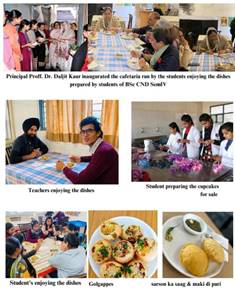
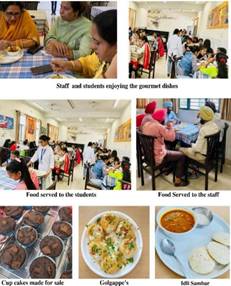
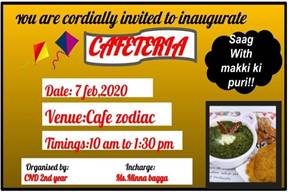
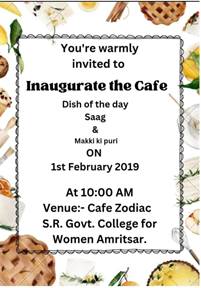
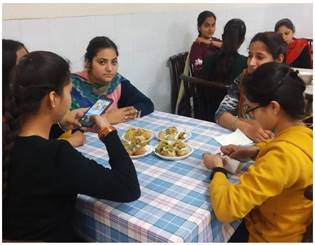
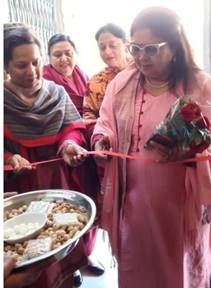
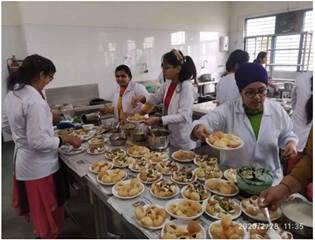
Do You Have Any Admission Enquiry?
For any kind of Admission Enquiry and Registration, Don’t hesitate to contact us for immediate support.